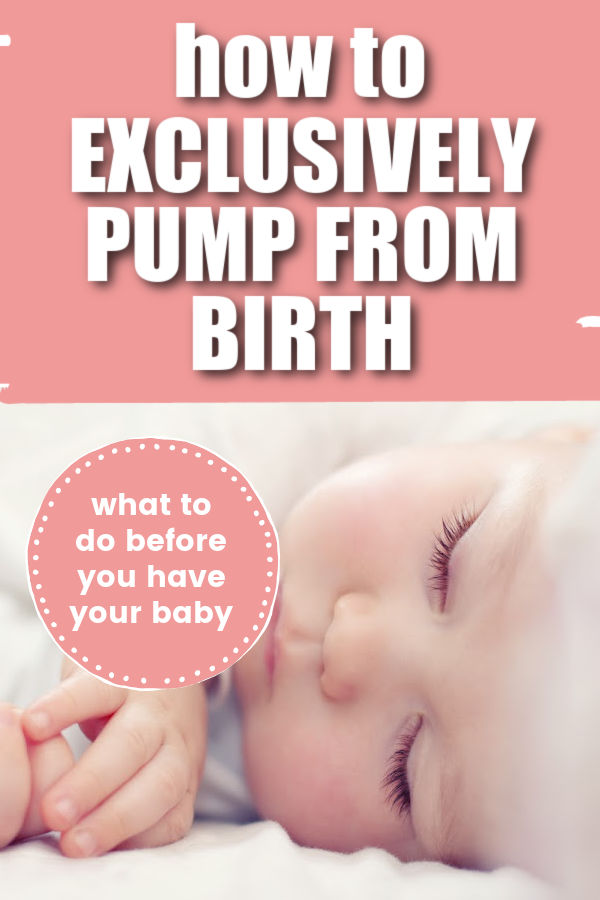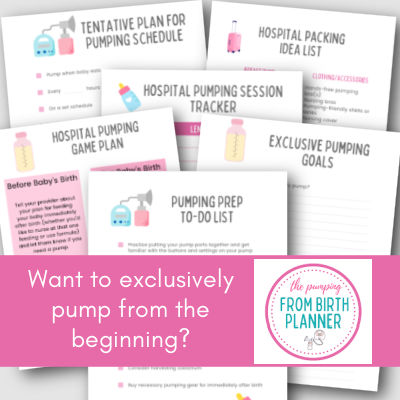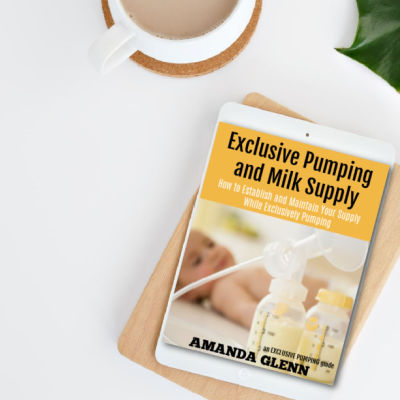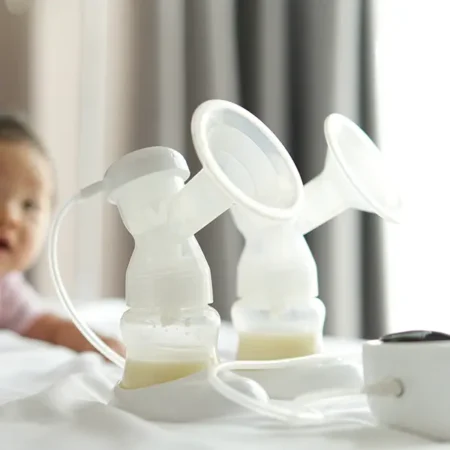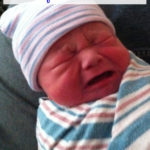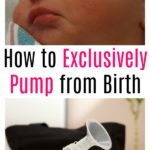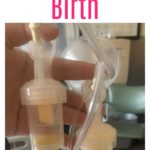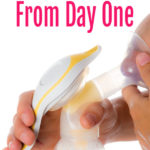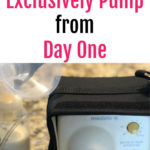If you’re pregnant and thinking about exclusively pumping from birth, here’s everything you need to know about what you’ll need, how to manage pumping in the hospital, and what happens when you get home!

This post may contain affiliate links, which means if you click a link and purchase something, I may make a small commission at no additional cost to you. I only recommend products I love! More information here.
Preparing to exclusively pump before your baby is born
If you are planning on exclusively breast pumping from birth, there’s some pumping gear you’ll want to have on hand before you have your baby.
What to get before your baby is born
I would recommend having the following:
1. A breast pump
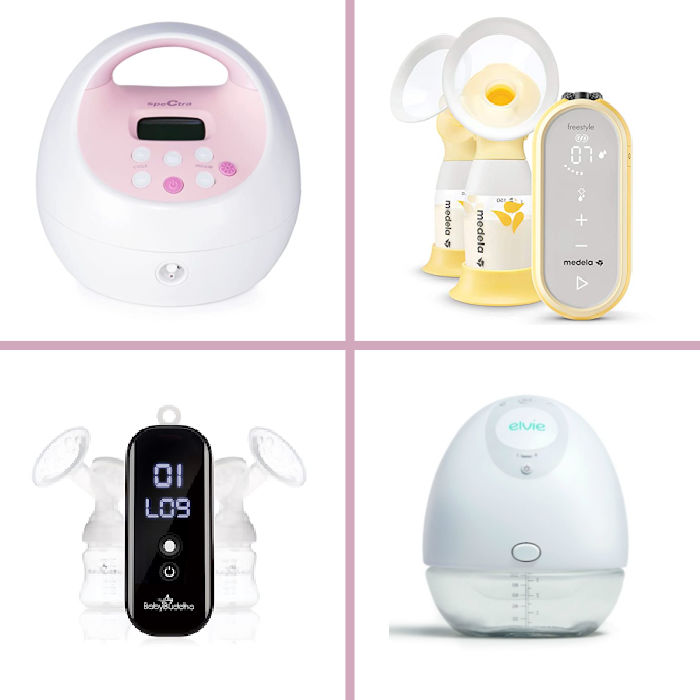
If you’re exclusively pumping from birth, you will need to start pumping soon after your baby is born, so you’ll want to have a pump on hand already.
If at all possible, you’ll want to get a double electric breast pump.
In the U.S., you should be able to get a free breast pump through your health insurance, if you have it. (I recommend going through Aeroflow Breastpumps; it’s super easy. You just fill out a form and pick the breast pump; they take care of the rest.)
As far as which pump you should choose – there are many great options. Two things to consider:
- I wouldn’t recommend getting a wearable pump to use as your primary pump as an exclusive pumper, as they are sometimes less effective than traditional pumps.
- In my experience, if you’re able to get a breast pump with a rechargeable battery, so that you’re not tied to an outlet, that is ideal.
Some specific recommendations here.
2. Extra sets of pump parts and bottles
Once you’ve chosen a pump, it’s a good idea to stock up on extra parts. Having extra sets of pump parts and bottles means that you don’t have to wash everything every time you pump. It’s MUCH easier to do it once in a batch.
3. Pumping and nursing bras
A hands-free pumping bra is essential – it allows you to use your hands to do things besides holding your breast shields up to your breasts while you pump. This is life-changing when you are spending two hours a day pumping, and will make the first weeks (and your entire pumping “career”) much easier.
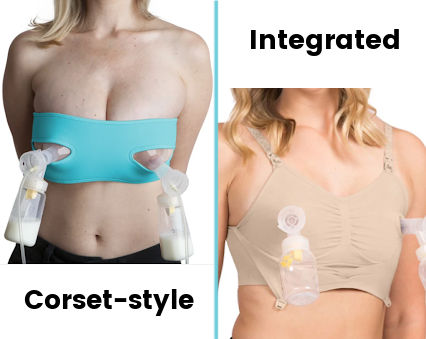
You can get pumping bras that you only use while pumping (shown on the left above), or combo nursing and pumping bras that you can wear all day (on the right).
If you choose a standalone pumping bra, I’d also consider getting some nursing bras to wear. Nursing bras are designed for lactating breasts – meaning there are usually no seams or wires that could cause clogged ducts, and they allow for easy access for pumping.
4. A wash basin
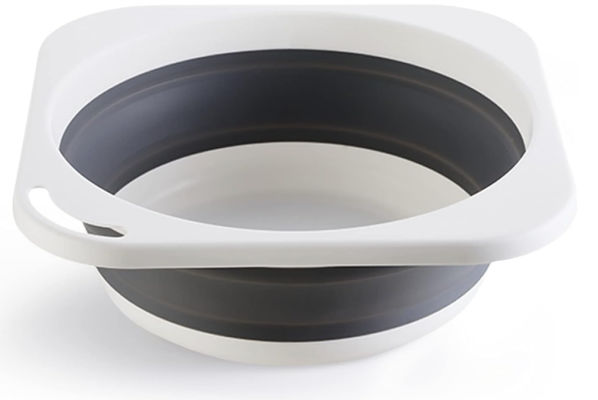
The CDC recommends washing breast pump parts and baby bottles in a separate wash basin rather than in a sink to avoid bacteria.
5. Breast pads
Once your milk comes in, it’s possible/likely that at some point, your milk will let down unpredictably and you’ll leak all over your shirt.
Breast pads can help prevent this.
What to do before your baby is born
After you’ve got everything you need, there are a few things I would suggest taking care of before you have your baby.
1. Practice
Practice putting your pump parts together and get familiar with the buttons and settings on your pump. Trust me – it’s much easier to figure everything out when you have a little extra time, versus later when you’re frazzled and sleep deprived.
2. Sterilize your gear
Your breast pump parts and bottles should be sterilized before first use.
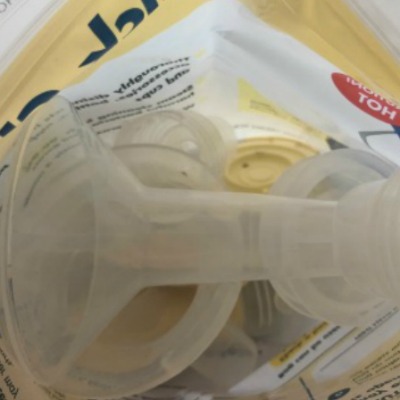
Here’s more on how to do this. Make sure to read the instruction manual for your breast pump to see if there are any parts that shouldn’t be sterilized.
3. Try hand expression
Consider practicing hand expression (after checking with your doctor), as it can help you express colostrum both before and after your baby is born.
4. Set up your pumping station

Create a pumping station where you can keep your pumping gear (you can use a rolling cart or a caddy if you will need to move around).
5. Think about your schedule
Make a tentative plan for your pumping schedule. Here are examples and different ways of doing this.
Want help with exclusively pumping from birth?
How to handle pumping in the hospital
Exclusive pumpers are often unsure of how to start pumping and feeding their babies in the hospital. Here’s what you need to know.
Before your baby’s birth and immediately after
If you give birth in a hospital or birthing center, you’ll probably be asked while you’re in labor whether you plan to breastfeed your baby. This can be a surprisingly hard question for an exclusive pumper, since you are breastfeeding, but not in the way that they probably imagine.
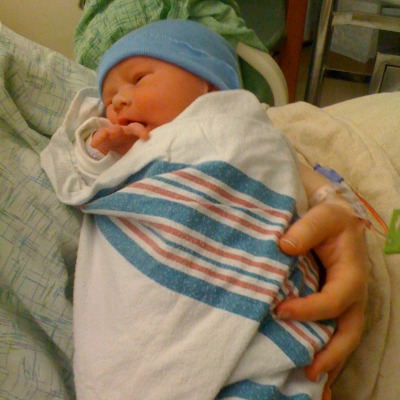
The major decision that you need to make is whether or not you want to nurse for your baby’s first feeding. Often, when everyone is healthy and a new mom has decided to breastfeed, her baby is placed on her chest for skin-to-skin and nursing right after birth.
What you decide to do is totally up to you – do one nursing session and pump from there, or decline.
Tell your provider about your plan for feeding your baby immediately after birth (whether you’d like to nurse at just that first feeding, or if you’d rather use formula at that time), and let them know that you will need to pump as soon as possible.
In recovery
Once you’re in recovery, you’ll want to pump about every 2-3 hours. It’s also okay if you need to take it easy on that first day to recover from childbirth or surgery, but do your best.
(Not sure how to use your pump? Here’s a beginner’s guide.)
If you’re not able to get any milk with your electric pump, you can try hand expression or using a Haakaa. Sometimes that can work better with colostrum, which is thicker than mature milk.
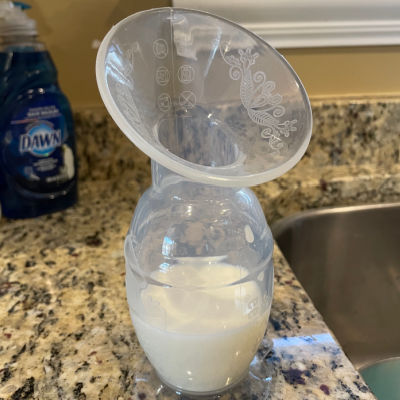
If you’re able to pump some colostrum, that’s great! Feed your baby whatever you’re able to express.
(Note: Some women – myself included – have a really hard time pumping colostrum. I never got more than a few milliliters in the hospital. This led my baby’s pediatrician to say the soul-crushing words – “that is a very small amount to have pumped” – to my postpartum self.)
More on feeding your baby before your milk comes in here.
Going home with your newborn
Your milk should come in about 2-4 days after you give birth. Since you’ll be pumping, it should be very clear when this happens! In my case I went from getting a few drops of milk at one session to a few ounces of milk at the next one.
When you get home, you’ll want to get on a schedule of some sort.
There are a few different ways to set up your schedule:
- Pump whenever baby eats
- Pump on a set schedule
- Pump every few hours
I started by pumping whenever my baby ate, but other women prefer to have set times to pump.
Everything you need to know about exclusively pumping for a newborn (how long and how often to pump, how much milk to expect, etc.) is outlined here.
Need help with exclusive pumping? Use EPUMP30 for 30% off
Make sure that you are sure about exclusively breast pumping from birth
The last thing I would recommend is to make sure that you’re sure about exclusively pumping.
Deciding to exclusively pump can be a big decision, because if you decide later you’d rather nurse, it can be hard to get your baby to cooperate.
There are tons of good reasons (for example, being a sexual abuse survivor, or just really not liking the idea of nursing) to decide before your baby is born that you definitely want to exclusively pump from birth.
But if you’re on the fence, you may want to give nursing a try. I personally found it easier than exclusively pumping. However, if you do want to exclusively pump, know that it is a valid decision and many women are successful at it.
More on the pros and cons of pumping vs nursing here.
If you’ve done it, share your tips on exclusively pumping from birth in the comments!
References
- Barger, Jan, IBCLC. “How Many Days Will It Take for My Milk to Come in?” https://www.babycenter.com/404_how-many-days-will-it-take-for-my-milk-to-come-in_8897.bc
- Bonyata, Kelly, IBCLC. “My breasts feel empty! Has my milk supply decreased?” https://kellymom.com/ages/older-infant/breast-fullness/
